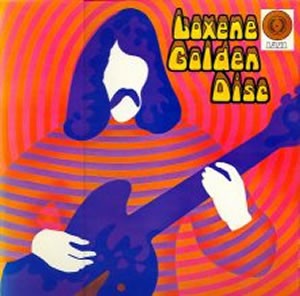
Cover of the 1971 Loxene Golden Disc album
Shampoo singles
The Loxene Golden Disc Awards were the forerunner of today’s Vodafone NZ Music Awards or New Zealand Music Awards. Named after Loxene shampoo, they were co-founded by the New Zealand Broadcasting Corporation (NZBC) and Reckitt & Colman, a soap powder manufacturer. These awards were first presented in 1965.
Much like New Zealand Music Month, the awards were designed to ‘create public awareness of the wealth and quality of New Zealand pop music talent’. Initially 10 songs (later 12) were selected by a panel, and people voted for their preferred choice (as well as answering ‘two simple Loxene questions’). Entry forms were available from all chemists and other selected stores.
In 1967 the advertising agency representing Reckitt & Colman stipulated that only votes via entry forms in the New Zealand Listener were eligible. It also insisted that a teenage judge be included on the panel. The New Zealand Federation of Phonographic Industry (NZFPI) insisted that only discs ‘made completely in New Zealand’ were to be considered.
Golden Disc Award albums were released by Viking Records in 1965 and 1966. In 1970, after a three-year hiatus, the NZFPI decided to release all the finalists on one album. Twenty-six thousand copies were made, and the album retailed at $2.99.
Record companies had to provide new copies of the songs selected as finalists free to each radio station in the country. For smaller labels this was an expensive process. Ode Records complained about having to provide ‘432 single-play records, 16 black and white photographs plus complete biographical data for each disc and artist’. The awards also raised some interesting issues regarding the promotion of New Zealand music. Terence O’Neill-Joyce of Ode Records outlined his label’s concerns in a letter to the NZFPI in 1972. His comments would not have been out of place during the later debate on whether a New Zealand Music Month was necessary:
the Loxene Golden Disc Award does not do full justice to locally produced material, it merely creates a situation annually whereby a large amount of local material is recorded, programmed and played over the NZBC network. What we want to see is a situation where locally produced material is aired 52 weeks a year and we feel it is time the NZBC acknowledged this.
Bryan Staff & Sheran Ashley, For the record: a history of the recording industry in New Zealand, 2002
In 1973 the NZFPI instituted its own system of awards, the Recording Arts Talent Awards (RATAs), and Reckitt & Colman dropped their sponsorship.
The NZFPI re-branded itself as the Recording Industry Association of New Zealand in 1978, and RIANZ awards were held annually. In 1999 the name changed to the Tui Awards.
Loxene Golden Disc Award Winners 1965–72
From 1970 the awards were split into two categories: best group and best solo artist.
|
Year |
Artist |
Song |
| 1965 | Ray Columbus and The Invaders | 'Till we kissed' |
| 1966 | Maria Dallas | 'Tumbling down' |
| 1967 | Mr Lee Grant | 'Thanks to you' |
| 1968 | Allison Durban | 'I have loved me a man' |
| 1969 | Shane | 'Saint Paul' |
| 1970 | Craig Scott (solo) | 'Lets get a little sentimental' |
| 1970 | Hogsnort Rupert (group) | 'Pretty girl' |
| 1971 | Craig Scott (solo) | 'Smiley' |
| 1971 | Chapta (group) | 'Say a prayer' |
| 1972 | Suzanne (solo) | 'Sunshine through a prism' |
| 1972 | Creation (group) | 'Carolina' |

Community contributions